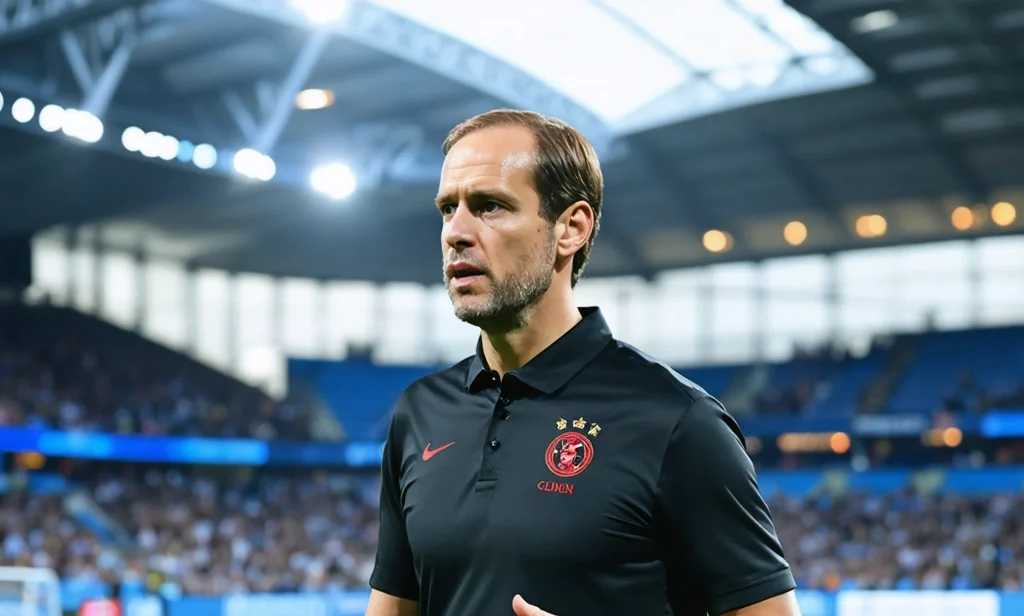
Introduction: A Controversial Decision in Modern Football
In the ever-evolving world of football, leadership decisions at the international level have far-reaching consequences. Thomas Tuchel, a figure well-known for his tactical acumen, recently ignited debate by declaring that he would not rotate his team merely to benefit club interests. Instead, his focus remains steadfast on raising the standard of play, especially in high-stakes matches like the upcoming World Cup qualifier against Latvia. This decision, though controversial, underscores his determination to approach international football with the same professional rigor that has defined his club career.
The Pressure of Overlapping Calendars
Balancing Club and Country
Managers and players alike often find themselves in a tug-of-war between club obligations and national duties. The modern football calendar is notoriously congested, with club fixtures and international matches cramming the schedule. Tuchel’s stance highlights a critical tension: while clubs expect star players to be well-rested and fit for key domestic matches, national team commitments are pivotal in fostering team unity and international competitive spirit. Tuchel believes that by ignoring the temptation to rotate the squad unnecessarily during these breaks, he can instill discipline and ensure that every player represents his country with maximum commitment.
Understanding the Risks Involved
Choosing not to rotate the squad is not without its risks. Players may face physical challenges by playing multiple high-pressure games in a short period, potentially leading to fatigue or injury. Yet, Tuchel argues that professional athletes have the responsibility to manage their fitness and that unprofessional risk management should not be an excuse for compromising team performance. His philosophy rests on the belief that every player understands the demands of the game and is expected to rise to the occasion, even if that means playing twice in four days.
Strategies for Raising Standards
Commitment and Professionalism as Cornerstones
The commitment to raising standards is a cornerstone of Tuchel’s approach. By not rotating the squad for unwarranted reasons, he sends a clear message: every international match is an opportunity to demonstrate high levels of consistency, sacrifice, and adaptability. This operational philosophy is particularly important in the context of matches against teams like Latvia, where every goal and decision can have far-reaching implications for World Cup qualification campaigns. Tuchel asserts that an unwavering focus on discipline and performance is essential to maintain the integrity of the team.
Implementing Tactical Rigor
Tactical rigor is at the heart of Tuchel’s methodology. His approach involves intricate planning and detailed preparation before every match. Training sessions become highly specialized drills where every player’s role is meticulously defined. Such high-level preparation not only builds a strong tactical foundation but also reinforces the notion that the country’s interests always come first. By making sure that each team member is fully aware of his responsibilities, Tuchel aims to build a unit that can perform harmoniously under pressure, despite the challenging schedule.
Consequences and Implications for the Future
Impact on Club-Manager Relationships
While Tuchel’s decision may ruffle feathers among club managers who are keen on keeping their squads fresh for domestic competitions, it also reflects a broader trend in modern football: the prioritization of national pride and decisive moments over the seemingly routine management of players’ minutes. This approach, though controversial, could redefine how national team coaches manage player rotations in the future. Tuchel’s unwavering commitment to his tactical principles might be viewed as a benchmark for future managers who face similar dilemmas.
Long-Term Vision for National Competitiveness
Looking ahead, the benefits of Tuchel’s decision could be seen in the longevity and competitive edge of the national team. By upholding strict standards in every match, the coach seeks to create a culture where every cap is earned through merit and unwavering dedication. The long-term vision is not only to secure victories but also to build a generation of players who understand the value of discipline and toughness. As the football landscape evolves, managers like Tuchel are at the forefront of shaping both tactics and the ethics of play, ensuring that every match is a true test of national spirit.
Conclusion: A Stand for Professionalism Over Convenience
Thomas Tuchel’s recent pronouncement is more than a mere tactical decision—it is a philosophical stand. His refusal to rotate the squad in favor of club owners’ interests demonstrates a commitment to excellence that transcends individual games. While the immediate fallout might include friction with club management and debates among pundits, the long-term benefits are clear: a national team built on resilience, unity, and an uncompromising work ethic is more likely to succeed on the international stage. In an era where shortcuts seem tempting, Tuchel is playing a long game, one that might ultimately redefine the role of professional ethics in high-level football. Through a series of well-thought-out tactical decisions and a clear focus on raising standards, Tuchel is setting a precedent that could inspire other national team managers. His approach challenges the existing norms, prioritizing the collective good over individual convenience. As the world watches the upcoming match against Latvia, football enthusiasts will be keen to see if this firm stance pays dividends. The debate is far from over, but one thing is certain: in the grand theater of international football, integrity and professionalism remain the ultimate game-changers.




